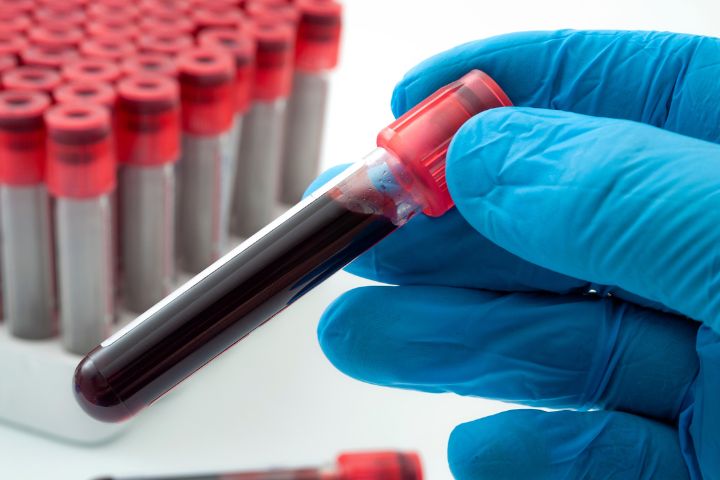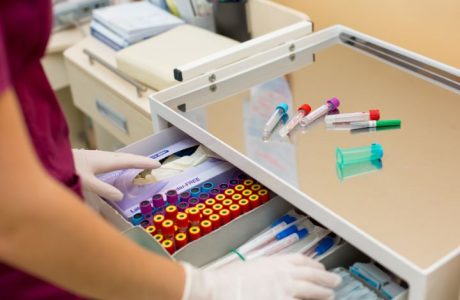2024 marks an exciting time to pursue a career as a certified phlebotomist. It is a fast-growing career in the United States with a variety of work environments. Many people are choosing this career path because it’s expected to grow by 8% from 2022-2032, according to the Bureau of Labor Statistics.1 Growing career options are one reason, but there are other reasons to consider becoming a certified phlebotomist.
When most people think of a phlebotomist, they imagine someone working at a blood drive. Phlebotomists draw blood, label it for testing/processing, enter sample information into databases, and work to keep their areas clean and sanitary. A phlebotomist does this process for dozens of people a day! It is a job that requires attention to detail, an outgoing nature, and organization.
The growing number of jobs and the fast-paced work environment are two big factors to consider when deciding on a phlebotomy career path. Here are three other reasons you might enjoy work as a certified phlebotomist:
- You enjoy helping others and want a career you can be proud of
- You are eager to work in the medical profession
- You want to pursue a career with variety in where you can work
Get started on your career journey today!
1. A career that you can be proud of!
Phlebotomists are part of a few life-saving processes, including:
- Routine blood work
- Blood samples for research
- Blood donations
Routine blood work can catch disease and other ailments early. There is an increased demand for blood testing right now. That is due to the growing population of older people. Blood testing and analysis is crucial to catch health issues early. That’s where a certified phlebotomist comes in! They also help with blood samples used for research purposes. This research goes on to improve health outcomes for all kinds of sicknesses and diseases.
Another way phlebotomists help save lives is through their work with blood donations. The need for plasma, red blood cells, and platelets is always high. According to the American Red Cross, someone in the U.S. needs blood or platelets every two seconds. 2 And when they do, time is of the essence for both the patient and the sample. Red blood cells have a shelf life of just 42 days (about a month and a half). Platelets have an even quicker “shelf life” of five days. 2
After a phlebotomist takes a blood donation, they send it along for processing. This is where donations separate into red cells, platelets, and plasma. They are then packed into “units” and sent on for testing for blood type and infectious diseases. Once approved, the units ship around the country. And this must be done in that window of 5-42 days! This is one reason the work of a certified phlebotomist is so important. They draw the blood and get it where it must go at a specific time.
Another important quality of a certified phlebotomist is empathy. You will need to be a source of comfort for patients or donors. Compassion and communication are important qualities for a phlebotomist. They will need to bring these qualities to work with them every day. Often, patients or donors are nervous and have questions about the procedure. Some people have a fear of needles. As a certified phlebotomist, your job is also to explain the process. You will also answer any questions they have to ease their anxieties.
With all that in mind, it’s easy to see how a career as a certified phlebotomist can be rewarding!
2. You’re interested in working in the medical profession
Certified phlebotomists can enter the medical field without spending many years in school. Most phlebotomy programs can take anywhere from a few months to a year to complete. It’s a great option for people eager to get started on their career. Certified phlebotomists usually work in the medical field full-time. They work with other medical professionals in hospitals, doctors’ offices, or laboratories. They also work hard to keep these medical facilities sanitary and prevent contamination.
One thing to keep in mind: the work of a certified phlebotomist is not for the faint of heart or for the easily squeamish. You will spend a lot of your workday with blood! Some phlebotomists in doctors’ offices collect urine and other samples. They will help patients understand proper collection and labeling. You’ll need a professional demeanor through it all! If you’re okay with these things being part of your workday, a career as a phlebotomist can be a great fit.
3. Variety of where you can work
A certified phlebotomy career can be a rewarding one. That is especially true for people who enjoy variety and a fast pace in their workday.
Most phlebotomists work in hospitals or medical/diagnostic laboratories. But they also work in:
- Doctors’ offices
- Outpatient care centers
- Ambulatory healthcare services
- Blood drives in the community
- Long-term care centers
- Patients’ homes
A certified phlebotomist might also work on the road with mobile donation centers. After a mobile blood drive, they take donations to research facilities or hospitals. Again, time is of the essence! Phlebotomists also spend a lot of time on their feet, no matter where they work. If you choose to work in a hospital, you will work nights, weekends, and holidays. These are key factors to keep in mind when thinking about where you want to work.
How can you get started on the road to becoming a certified phlebotomist?
Before starting a career as a certified phlebotomist, you will need some medical training. You can learn these skills through a specialized phlebotomy program. To become a certified phlebotomist, start by researching programs offered in your area. For most programs, you need a high school diploma or GED to get started.
Some people choose to pursue a national certification after their program as well. Many employers want phlebotomists to have these certifications, so it’s worth considering.
The best way to start your career journey is by researching programs that will fit your needs. A few questions to ask as you start your search might include:
- Does this program have a robust curriculum? Does it cover a wide variety of topics from quality control to anatomy?
- Does the program include a hands-on component? This will help you gain valuable real-world experience.
- How long should the program take to complete?
- Does your state require any additional education or certifications? If so, be sure the program you choose is one that will help you prepare.
Take a step towards your future with Training Direct
For people interested in pursuing a phlebotomy career in Connecticut, Training Direct offers a robust phlebotomy training program. Learn key topics like:
- Infection control
- Medical terminology
- Anatomy
- Specimen handling and processing
- And more
The program can take as little as 3-4 weeks to complete. It includes hands-on training in classrooms and in a clinical laboratory setting. Ready to learn more? Contact us to learn how to get started on your career journey today!
- https://www.bls.gov/ooh/healthcare/phlebotomists.htm (visited 1/20/2024)





